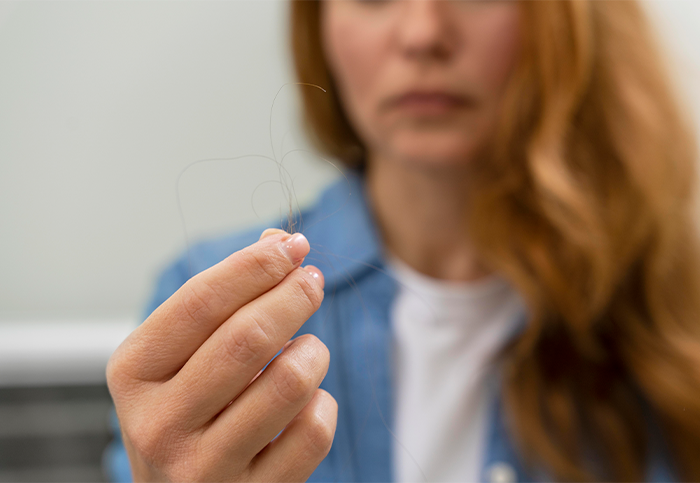Nutritional Deficiencies That May Lead to Depression
Depression is a condition when a person faces several abnormal changes in the body, caused by many factors; injuries, diseases, emotional losses, or nutritional deficiencies. In this article, we’ll be discussing the link between nutritional deficiencies and the onset of depression.
Although there is no specific diet recommended to recover from depression, but there are some nutrients whose deficiency or presence in the diet is associated with the onset of depression. Depression can lead to a disturbed sleep-wake cycle and loss of appetite. Therefore, managing these two problems becomes necessary to take control over ongoing depression.
When left unnoticed, major fluctuations may occur in the sleeping pattern of the affected person and this can make the situation worse. It is a well-known fact that when a person doesn’t sleep well, he/she doesn’t eat well either, which may lead to severe nutritional deficiencies. Therefore, fulfilling the sleep becomes as important as fulfilling the nutritional deficiencies.
Nutrients like; vitamin B12, vitamin B6, omegas, and tryptophan are associated with the normal functioning of the brain. Thus, a person who is deficient in these vital nutrients is more prone to get depressed and these nutrients must be included in daily diet to fend off the onset of depression caused by nutritional deficiencies.
Now, these nutritional deficiencies can be fulfilled by consuming foods that are rich in these nutrients; meat, eggs, dairy products, fish oil, and foods that are rich in antioxidants (fruits and vegetables). But the use of dietary supplements that are rich in these nutrients is another efficient way of fulfilling these nutritional deficiencies, as this is a rapid and effective way of targeting and fulfilling the deficient nutrients.
The issue that comes in the way of fulfilling nutritional deficiencies through diet, is the loss of appetite caused by depression. That’s why additional help is required in the form of dietary supplements that will not only help to overcome the symptoms of depression but will provide a healthy amount of deficient nutrients. Besides, some dietary supplements contain extracts of supportive herbs to enhance the efficacy of other ingredients and thus become a more suitable choice for overcoming depression. The dietary supplements mentioned below fall in this category.
1. Nuroton, Sleep Well, Melatonin, and Melatonix
This wide range of dietary supplements is specially formulated to promote good sleep and to reduce the symptoms of sleep-associated depression. Nuroton contains 5-HTP, Vitamin B6, and Vitamin B3 which are somehow involved in the production of the relaxing hormone, serotonin, and thus helps to reduce the nutritional deficiencies associated with depression.
Whereas, the other 3 dietary supplements; Sleep Well, Melatonin, and Melatonix, are composed of extracts from some herbs, and a natural hormone, melatonin, that when used in combination will not only promote good sleep but will also help to relieve depression and jet lag.
2. Ginkgo Focus
Ginkgo Focus is a dietary supplement that contains a mixture of two botanical extracts; Ginkgo Biloba and Panax Ginseng. Both these herbs are found to help improve blood flow throughout the body including the brain. So, when the brain is getting what it wants, it will automatically function normally and there will be a lesser risk for the onset of depression.
3. Vitamin B12
The deficiency of vitamin B12 is linked with abnormal levels of serotonin in the body, causing a disturbance in sleep patterns and the ability to focus. Such disturbances or disorders in the lifestyle can lead to major mood swings and depression. Therefore, Vitamin B12 is specially designed to fulfill the deficiency of this vital nutrient and to tackle the unhealthy effects of depression. Moreover, this dietary supplement can also help in normal red blood cell formation.
References:
• https://www.healthline.com/health/depression/b12-and-depression
• https://www.webmd.com/depression/guide/depression-sleep-disorder
• https://www.medicalnewstoday.com/articles/8933#symptoms
• https://www.webmd.com/depression/guide/diet-recovery
• https://www.healthline.com/nutrition/ginkgo-biloba-benefits#TOC_TITLE_HDR_8



